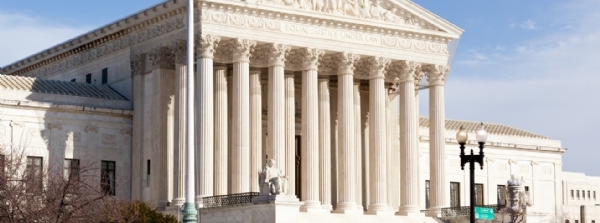Today the Supreme Court issued its decision in American Hospital Association et al. v. Becerra et al. (No. 20-1114), holding that the U.S. Department of Health and Human Services (HHS) unlawfully reduced Medicare payment rates in 2018 and 2019 for certain outpatient prescription drugs provided by hospitals participating in the 340B drug discount program. Writing for a unanimous Court, Justice Kavanaugh concluded that the text and structure of the statute (42 U.S.C. 1395l(t)(14)) made the case straightforward: “Because HHS did not conduct a survey of hospitals’ acquisition costs, HHS acted unlawfully by reducing the reimbursement rates for 340B hospitals.” Without such a survey, the statute requires “uniform reimbursement rates for all hospitals for each covered drug” based on the average prices and does not permit HHS to “make ‘billion-dollar decisions differentiating among particular hospital groups.’” Although the statute affords HHS the discretion to adjust the average price, it does not permit HHS to “set different rates for different groups of hospitals.” “Such an adjustment can consist of moving the average-price number up or down, but it cannot consist of giving a single drug two different average prices for two different groups of hospitals.” Finally, the Court rejected HHS’s contention that “Congress could not have intended for the agency to ‘overpay’ 340B hospitals for prescription drugs” noting that the 340B program predates the relevant statutory provision on hospital payments for certain outpatient prescription drugs. The Court acknowledges that “the 340B story may be more complicated than HHS portrays it” in light of 340B hospitals’ arguments about the services they provide to low-income and rural communities, but concludes that “this Court is not the forum to resolve that policy debate.” In addition, like the district court and Court of Appeals, the Court rejected HHS’s argument that the Medicare Act precludes judicial review, concluding that “nothing in the statute precludes judicial review of reimbursement rates set under” the outpatient prescription drug reimbursement methodology set forth in 42 U.S.C. 1395l(t)(14). Rather, “the detailed statutory formula for the reimbursement rates undermines HHS’s suggestions that Congress implicitly granted the agency judicially unreviewable discretion to set the reimbursement rates.” While the decision in AHA v. Becerra concerns HHS’s 2018 and 2019 outpatient payment rules, the payment methodology has remained in place in the intervening years. In 2020, however, HHS conducted a survey of 340B hospitals that was discussed in the outpatient prospective payment system rulemaking for 2021. Although HHS asserted that the survey results warranted a more significant reduction in outpatient prescription drug payments to 340B hospitals, the agency maintained the existing payment methodology. Notably, the 340B payment reduction was implemented in a budget neutral manner, with outpatient hospital claims receiving an additional payment of 3.2 percent each year since 2018. In 2019, when the district court previously upheld AHA’s challenge to the 340B payment rule, the court remanded the case to the Secretary without vacatur noting and noted HHS’s arguments regarding the complexities that budget neutrality creates in this case. The Court likewise notes HHS’s contention that “a judicial ruling invalidating the 2018 and 2019 reimbursement rates for certain hospitals would require offsets elsewhere in the program” and the hospitals’ response that “various potential remedies could make 340B hospitals whole for the past shortfalls without running afoul of the budget-neutrality provision.” At this stage, however, the Court concluded that it “need not address potential remedies.” The outpatient prospective payment system proposed rule for CY 2023 is expected to be released sometime in the next month, and the timing of the Court’s decision makes it unlikely that a substantive proposal regarding remedies will be included in the proposed rule. If you have any questions regarding this decision, please reach out to attorneys at Hooper, Lundy, and Bookman to determine how best to proceed in this new, and rapidly changing, regulatory environment. Please contact Katrina Pagonis in San Francisco; Lloyd Bookman and Charles Oppenheim in Los Angeles; Sven Collins in Denver; Robert Roth, David Vernon, and Kelly Carroll in Washington D.C., or any other member of our Hooper, Lundy & Bookman team.Unanimous Supreme Court Rules Against HHS in 340B Payment Reduction Challenge With Uncertain Consequences for Hospitals

Professional
Related Capabilities

